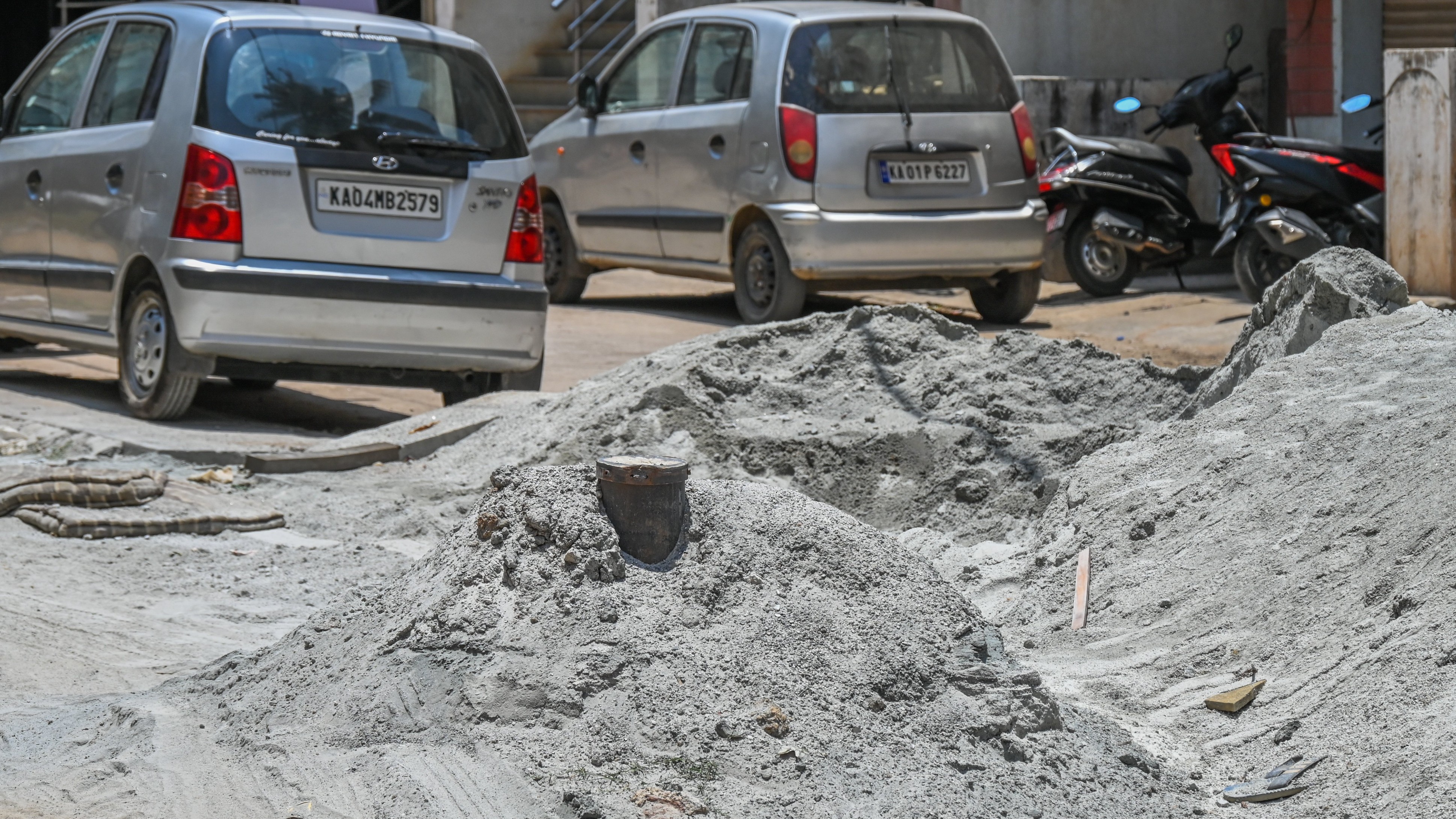
Drilling waste left along New BEL Road at RMV 2nd Stage. Along with air pollution, it also adds to noise pollution.
Credit: DH PHOTO/SK DINESH
Bengaluru: Amid the water scarcity and escalating temperatures, the BWSSB and BBMP are aggressively drilling new borewells, leaving mounds of soil on the wayside, blocking the road, and polluting the air.
A resident of Muneshwara Layout in Aavalahalli recently posted on X, claiming that the Bruhat Bengaluru Mahanagara Palike (BBMP) left the dug-up soil on the roadside while digging a borewell in the layout on Kudlu Road. This had obstructed the traffic and caused pollution.
A resident of Horamavu Agara said they had to pay Rs 2,000 to call two tractors to clear the borewell debris.
While the BBMP officials concerned were unavailable for comment, a BWSSB engineer told DH: "We do not use the soil debris left behind by borewell-drilling anywhere as it is not of good quality. We let it dry on empty land in the city outskirts.”
An official also added that the agency uses stone dust to refill the damaged edges of manholes, pipelines, and trenches in the city, adding that they drilled over 200 borewells.
The Bangalore Water Supply and Sewerage Board (BWSSB) has drilled much of the borewells in residential areas like Purna Anjaneya Layout in Hennur, Venkateshappa Layout near Kullappa Circle, and Byrappa Layout in Nagawara. But the official said they do not have a record of the soil debris and sand dust excavated in the process.
Do builders use borewell dust?
Rajesh Korah, who co-owns a Construction and Demolition (C&D) waste processing unit, Rock Crystals, in Chikkajala, said: "We do not specifically get the waste produced from borewell-drilling as such."
Korah, who handles C&D waste from major builders and contractors, said the soil dug up during borewell-drilling might end up in landfills, which, he pointed out, is against the National Green Tribunal (NGT) guidelines.
He explained that his unit only receives a large quantity of construction debris from builders and the BBMP segregates it into concrete, brick and mortar, soil, steel, and plastic. These are processed into solid blocks used in road construction.
An earlier report by DH, quoting official records, said that Bengaluru produces nearly 3,000 tonnes of construction waste every day.